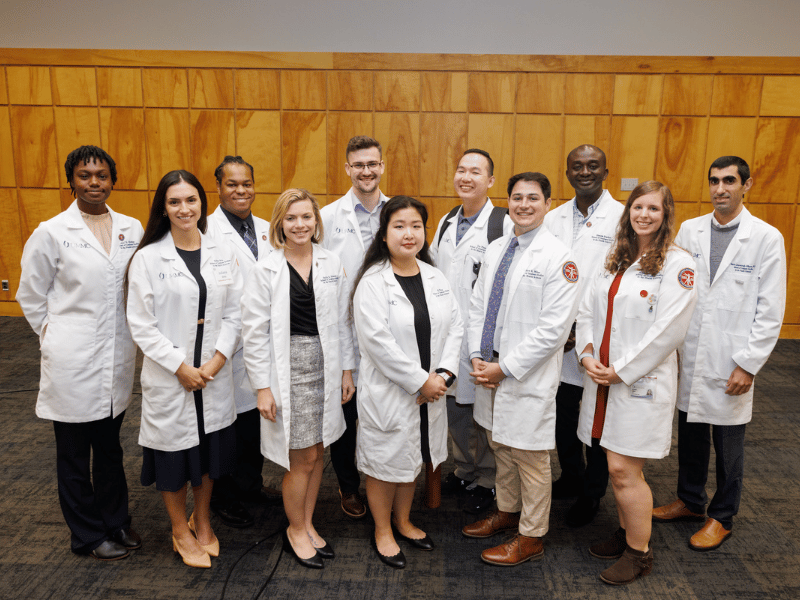Graduate School honors two distinguished alumni for first time
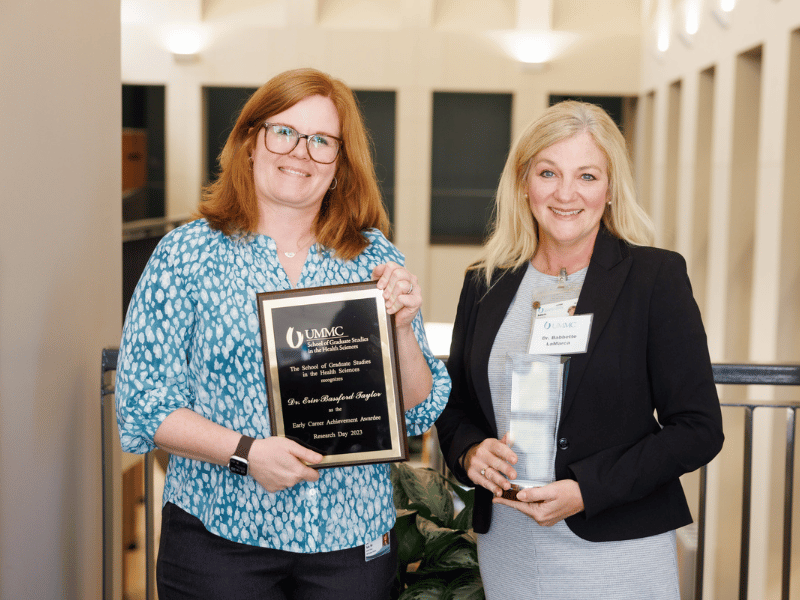
For the first time, the School of Graduate Studies in the Health Sciences at the University of Mississippi Medical Center has honored two faculty members during its annual Research Day.
Dr. Babbette LaMarca, chair and professor of the Department of Pharmacology and Toxicology, received the Distinguished Alumna Award.
Dr. Erin Taylor, assistant professor of physiology and biophysics, received the inaugural Early Career Achievement Award.
“I feel very honored to receive the Early Career Achievement Award from the SGSHS,” Taylor said. “I’m fortunate to have trained with great mentors and professors here at UMMC who have helped me throughout my career.”
The new award was created because there was no mechanism in place to honor the achievements of young graduates, said Dr. Sydney Murphy, SGSHS dean. To qualify, alumni must be no more than five years beyond graduation or post-doctoral fellowship training.
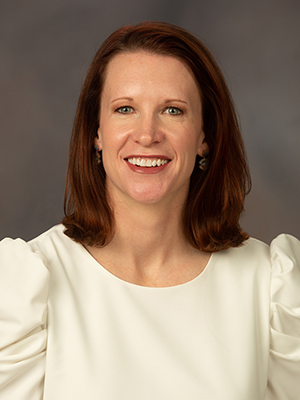
“Erin has been wildly successful and has remained funded throughout her research career,” said Murphy. “She’s not only a fantastic researcher but also a great educator and mentor. She is also respected by our senior professors within her department for her expertise and knowledge.”
Taylor earned a PhD in microbiology and immunology and completed her postdoctoral training in physiology at UMMC.

The two honorees are “outstanding representatives for research,” said Dr. Caroline Compretta, assistant vice chancellor for research.
Dr. Larry McDaniel, professor of cell and molecular biology, said he has known LaMarca since she spent time in his lab as a student while he served on her dissertation committee. Well-funded throughout her career, she has authored more than 135 peer-reviewed articles and mentored nearly 50 trainees.
“She has had a meteoric rise through the ranks,” McDaniel said.
During her keynote address, LaMarca, who earned a PhD in microbiology and immunology in 2004 and completed her postdoctoral training in physiology at UMMC, shared advice gained while matriculating through graduate school.
“Three things I took away from my graduate training were, number one, always work hard,” she said. “Study mechanisms and look at how things happen and create good collaborations with people who are experts in areas in which you are not and ask for their help.”
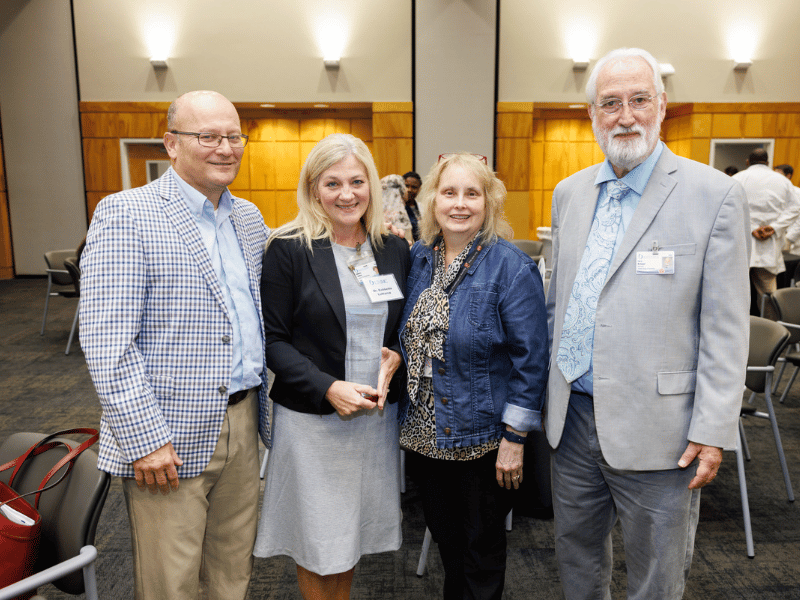
In charting her journey from PhD student to department chair, the distinguished alumna said she was not particularly interested in physiology until a friend, Dr. Barbara Alexander, now professor of physiology and biophysics, urged her to talk to Dr. Joey Granger, then professor in the department.
He explained what she would be working on in his lab as a fellow: determining how inflammatory protein cells play a role in causing hypertension during pregnancy.
“That was really interesting to me because many patients with bacterial infections also have chronic inflammatory responses,” LaMarca said. “So, a little lightbulb went off and I was excited about the project.”
The deal was sealed after Granger asked about her family – she and her husband had two young children at the time, wanting to add another soon – and proudly showed her pictures of his own three children and wife.
“I thought to myself, ‘this is the environment I needed to continue my training in.’”
In his lab, LaMarca said Granger surrounded her with experts, taught her how to create models of disease and allowed her to use her own expertise from molecular biology to develop techniques and apply them to physiology.
During those post-doctoral years, she learned a lot more than hypertension and physiology.
Most memorable, she said, was not to get caught up in negativity.
“You’re not always going to win the award, your paper’s not always going to get accepted,” she told the audience of emerging researchers. “But don’t become absorbed with the negativity. Find the positive in what you do and where you are.”
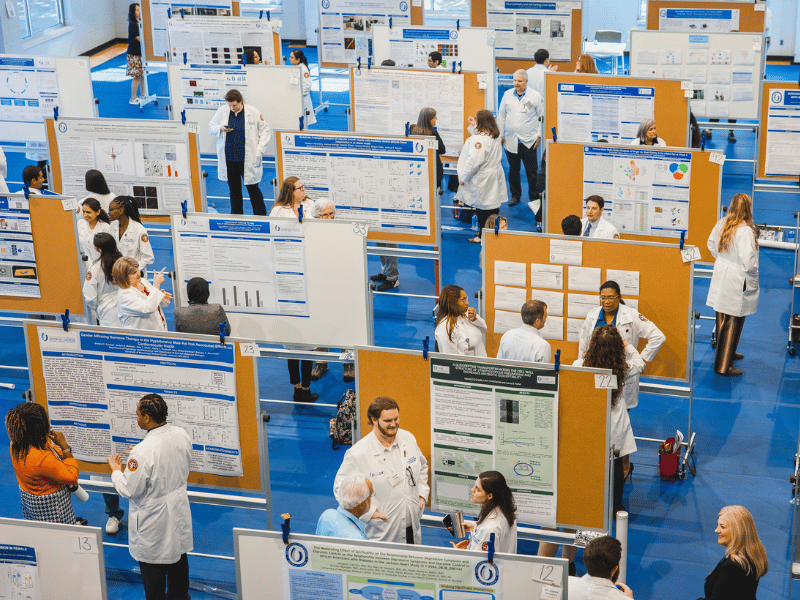
Other nuggets she shared with the audience were to use previous training to create their own niche and think outside the box.
LaMarca also implored students to create small circles of trust by selecting mentors they can confide in and learn from, and as they become mentors themselves, to widen that circle, providing an environment in which mentees can flourish.
“Be happy for other people in their success,” she added. “Don’t compare your trajectory to somebody else’s, because we are all different.”
She also stressed the importance of prioritizing family and allowing staff to do the same.
“Without my husband, I certainly wouldn’t be standing here today as a distinguished alumna. He played both mom and pop while I was in school. And I’m very thankful for that.”
Her final words of wisdom were to enjoy their training.
“That’s what academic medicine is all about. Right now, you’re the next generation, so wherever you are in your career, enjoy being there. Learn as much as you absolutely can from the wonderful mentors we have here at UMMC,” LaMarca said.
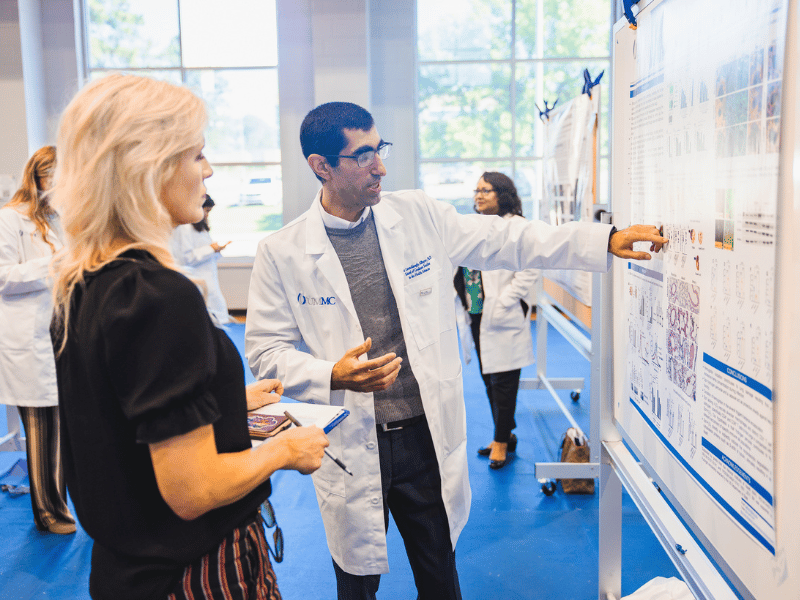
During the day-long event, Compretta told the room full of white-coated students and post-doctoral fellows, faculty and staff that they all contribute to the success of the research mission, illustrating that fact through numbers.
During the last fiscal year, UMMC researchers submitted 350 proposals and received 311 awards. They have also activated 58 clinical trials and authored 1,176 publications.
“At UMMC, we publish 10 peer-reviewed articles for every $1 million of funding that we receive,” Compretta continued. “That’s an excellent percentage when medical schools across the country only average five or six publications per $1 million.
She told the students and fellows, who presented 74 oral and poster presentations throughout the day, that they were “learning from mentors who are incredibly successful and have extensive track records for both getting their research funded and publishing it for the wider scientific community. So, I hope you’re taking advantage of those opportunities to learn from such outstanding faculty mentors.”
The SGSHS presented 13 students and fellows with awards for their presentations.
Dr. Babak Alibayov, cell and molecular biology
Juliana Sitta, biomedical sciences and imaging
Breland Crudup, physiology and biophysics
Nathan Campbell, experimental therapeutics and pharmacology
Kristianna Felch, microbiology and immunology
Bridget Konadu, cell and molecular biology
Andrew Milner, experimental therapeutics and pharmacology
Xi Wang, experimental therapeutics and pharmacology
Oheneba Boadum, clinical anatomy
John Crawford, microbiology and immunology
Shelley Edwards, MD-PhD neuroscience
Jena’ Mazique, neuroscience
Loc Pham, neuroscience
